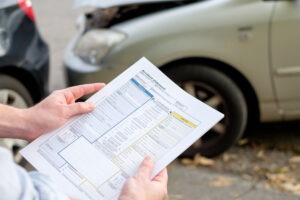
The myth of the Ship of Theseus remains as relevant today as it was in ancient Greece. In some interpretations of the myth, it doesn’t matter how beautifully a damaged vehicle’s repairs are. The ship is different because it’s been repaired, and thus its value has changed.
What does this have to do with a diminished value claim? Everything. Your car loses value after an accident. It doesn’t matter if you invest in repairs or even upgrade certain parts. If you attempt to sell your car, the mere fact that you were involved in an accident reduces the amount of money you make from that sale.
Fortunately, Indiana gives you a way to recover that diminished value. You can collaborate with Vaughan & Vaughan’s car crash attorneys in Indiana to file a diminished value claim with an at-fault party’s insurance provider. That claim gives you the right to demand compensation for the vehicular value that you can never get back.
What Is a Diminished Value Claim?
A diminished value claim highlights the value that your vehicle lost in the wake of an accident. There are several types of diminished value claims, including the following:
- Immediate diminished value claims – emphasizes the difference between a car’s value from the moment before an accident to the moment after
- Post-repair residual inherent – emphasizes the difference between a car’s pre-accident value and its post-repair value
- Repair-related – emphasizes the diminished value of a car in the wake of poor repairs
You can make either a first or third-party diminished value claim after a car accident, depending on your relationship to the car. For example, a vehicle’s owner can make a first-party claim against their insurance provider. A vehicle’s owner can alternatively make a third-party claim against a liable party’s insurance provider.
Indiana specifically allows its car accident survivors to file third-party claims distinguishing the difference between a car’s pre-accident value and its post-repair value. You can discuss the dollar value of such a claim with an Indiana car accident lawyer with Vaughan & Vaughan.
Your Case Will Get
The Attention It Deserves

How Can You Calculate Diminished Value After a Car Accident?
Car insurance companies rely on the 17c formula to help determine what the difference is between a car’s pre-accident value and its value after an accident and relevant repairs. This formula requires providers to go through several steps to assess the distinct damage done to a vehicle and how repairs may fail to fully restore the vehicle’s value.
That said, we recommend having an attorney on call when an insurance provider attempts to complete a diminished value appraisal. At the end of the day, insurance providers operate as businesses. These businesses want to prioritize their income, not your recovery. If you have an attorney on call, you can intervene before an appraiser underestimates your losses.
You can expect the appraiser who determines the diminished value of your vehicle after an accident to:
Assess Your Car’s Unique Factors
There are certain factors that established your car’s overall value prior to your accident. These factors can include the car’s make, model, and year of release. If the car has specialized features, including a unique engine, wheel type, or even color, it may have a higher value than a comparable model.
Car insurance providers must consider these unique factors and their dollar value when assessing the car’s pre-accident value and its value after an accident. If there are certain features on a newer car, for example, that repairs can never replicate, you can demand compensation for that difference in value.
Mileage, in particular, plays a significant factor in determining your vehicle’s value. If you have over 50,000 miles on a car, car insurance providers can apply a mileage multiplier of 0.06 to the damages you’re already owed for an accident. That multiplier decreases as a car takes on more miles but increases for vehicles that have seen less use.
Account for a Provider’s Damages Cap
Unfortunately, many car insurance providers put a cap on the amount of diminished value compensation you can receive after an accident. The cap will vary depending on the insurance provider that a liable party relies on for protection. Car insurance providers and Indiana car accident lawyers must consider this cap when estimating the value of your claim.
How Can You File a Diminished Value Claim in Indiana?
If you want to file a diminished value claim in Indiana, you need to reach out to a liable party’s insurance provider in the days, weeks, or months following your accident. The process through which you file your claim will vary depending on which provider a liable party relies on for accident protection.
That said, you can always turn to Indiana car accident attorneys for help filling out a diminished value claim. If you file a claim and find that an insurance provider won’t offer you an adequate settlement, our team can step in and advocate on your behalf.


Why Should You File a Diminished Value Claim After an Indiana Car Accident?
Filing a diminished value car accident claim lets you supplement the accident damages you might not receive when filing a personal injury claim or a claim with an insurance provider. If you feel like the settlement offers you’ve received from relevant parties won’t adequately address your losses, a diminished value claim can help you bridge the gap.

Let a Car Accident Attorney Help You With the Filing Process
Your car may naturally lose some of its value in the wake of a car accident. You don’t have to let that diminished value go unacknowledged, though. You can work with a car accident lawyer to address your car’s lost value and demand that said value be compensated.
Vaughan & Vaughan have car crash lawyers in Indiana who can guide you through the process of calculating your car’s lost value and filing a diminished value claim with an at-fault party’s insurer. You can count on our team to protect you from insurance companies’ avoidance tactics. Contact us through Vaughan & Vaughan’s website or by phone today to learn more.






